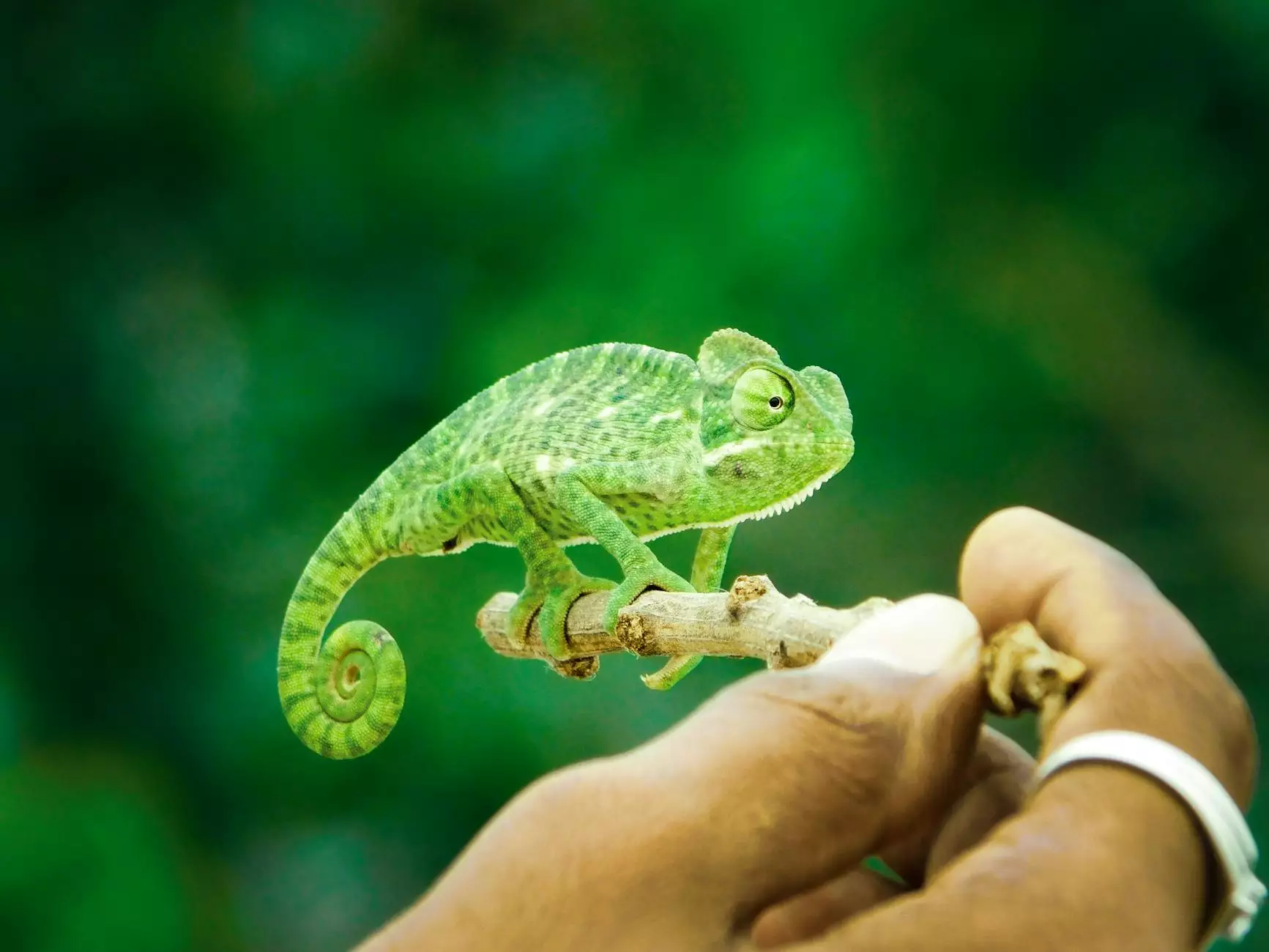Finding the Perfect Lizard to Buy: Your Ultimate Guide

For those captivated by the world of exotic pets, the quest to find the ideal lizard to buy can be both exhilarating and overwhelming. With various species to consider and a host of factors influencing your choice, it's essential to arm yourself with knowledge before taking the plunge into lizard ownership. In this comprehensive guide, we will explore different lizard species, their care requirements, how to select a reputable breeder, and tips for a successful adoption experience.
Understanding the Appeal of Lizards as Pets
Lizards are becoming increasingly popular as pets due to their unique appearances, fascinating behaviors, and relatively simple care needs compared to traditional pets like dogs and cats. They offer a captivating alternative for animal lovers and can be a wonderful addition to homes, schools, or even offices.
Benefits of Owning a Lizard
- Low Maintenance: Many lizard species require minimal daily care, making them suitable for busy lifestyles.
- Space Efficiency: Lizards take up less space than many other pets, making them ideal for apartment dwellers.
- Educational Value: Keeping a lizard provides an incredible opportunity to learn about reptiles and contribute to conservation efforts.
- Unique Companion: Each species has its personality traits and quirks, providing a unique bond between the owner and the pet.
Popular Lizard Species for Beginners
Once you decide to purchase a lizard, it's crucial to select the right species that suits your lifestyle. Below are some popular choices among first-time reptile owners:
Bearded Dragon
The bearded dragon is a favorite among pet owners due to its friendly nature and ease of care. These lizards thrive in captivity and are known for their colorful appearances and social behavior. They typically require a spacious enclosure with a heat source, UVB lighting, and a diet of both plants and insects.
Leopard Gecko
If you are looking for a smaller lizard, consider the leopard gecko. These nocturnal lizards are hardy and very forgiving to beginners. They have a simple diet mainly consisting of insects and do not need additional heat sources except during basking. Their calm demeanor makes them ideal for handling.
Blue-Tongue Skink
The blue-tongue skink is unique with its striking blue tongue and friendly personality. They require a diet rich in fruits, vegetables, and protein, and their enclosures should include plenty of hiding spots and space to roam. They enjoy interaction, which makes them great pets for those who want a lizard they can handle.
What to Consider When Choosing a Lizard
When searching for a lizard to buy, there are several factors you should consider to ensure you make the best choice for your lifestyle:
Space Requirements
Different lizard species have varying needs when it comes to enclosure size. Ensure you have sufficient space in your home to accommodate the lizard's habitat, including hiding spots, climbing areas, and, importantly, room for basking.
Temperament and Social Needs
Some lizards are more social than others. Consider whether you would enjoy a lizard that thrives on interaction or one that is more solitary. Research the species’ temperament and ensure it aligns with your preferences.
Dietary Needs
Understanding the dietary requirements of your chosen lizard is crucial. Some species are insectivores, while others need a balanced diet of vegetables and fruits. Make sure you are comfortable providing the necessary diet and that it fits your budget.
Local Regulations and Availability
Do some research on local laws regarding pet ownership, as certain species may be restricted in your area. Additionally, check the availability of the lizard you are interested in to ensure you can find a reputable breeder.
Finding a Reputable Breeder
Once you have decided on the type of lizard you want, the next step is to find a reliable source. Purchasing from a reputable breeder ensures you get a healthy animal with a known history.
Characteristics of a Good Breeder
- Transparency: A reputable breeder will be open about their breeding practices and provide information about the lizard's lineage.
- Striving for Health: Good breeders prioritize the health and well-being of their lizards, ensuring they are disease-free and well-cared-for.
- Support: An excellent breeder will offer support and guidance for new owners, answering any questions about the lizard's care.
- Clean Environment: Visit the breeding facility to ensure the animals are kept in clean and well-maintained conditions.
The Care Essentials for Your Lizard
Once you have brought home your new lizard, providing the appropriate care is vital for its health and well-being. Here are some key aspects to consider:
Enclosure Setup
Your lizard needs a secure and comfortable habitat that mimics its natural environment as closely as possible. Factors to consider include:
- Size: Ensure the enclosure is large enough for the lizard to move freely.
- Heating and Lighting: Provide a heat source and UVB lighting to support metabolic processes and Vitamin D synthesis.
- Furniture: Include hiding spots, climbing structures, and a substrate that allows for natural behavior.
Feeding and Nutrition
Feeding your lizard the right diet is crucial. Research to understand your lizard's specific dietary needs. Most lizards will require a combination of:
- Live insects: Such as crickets, mealworms, or roaches.
- Vegetation: Leafy greens, fruits, or flowers depending on species.
- Supplements: Calcium and vitamins may be necessary for some species.
Regular Health Check-Ups
Monitor your lizard’s health by observing behavior, appetite, and physical appearance. Regular veterinary check-ups can help catch any potential issues early.
Conclusion: Is a Lizard Right for You?
Deciding to bring a lizard into your home is a rewarding venture that can provide companionship, education, and a unique experience unlike any other pet. By understanding the types of lizards available, the necessary care requirements, and how to find a reputable breeder, you can ensure a smooth transition into lizard ownership.
Remember, the choice of a lizard to buy should align with your lifestyle, living conditions, and personal interests. If you've taken the time to research and prepare, a wonderful adventure with your new exotic pet awaits.
Resources for Further Reading
- EU Exotic Reptiles - A trusted site for lizard care and breeders.
- Reptiles Magazine - Expert advice and insights on reptile care.
- Herp Vet - Find veterinary care specialized in reptiles.









